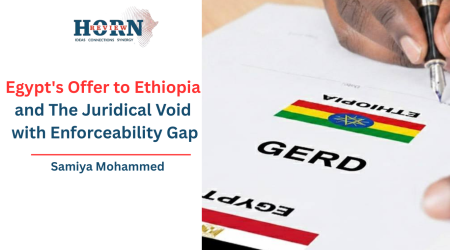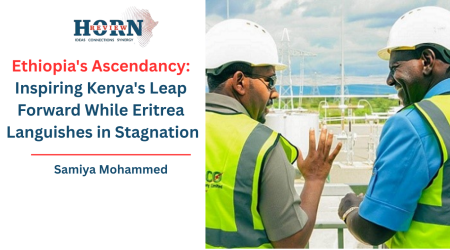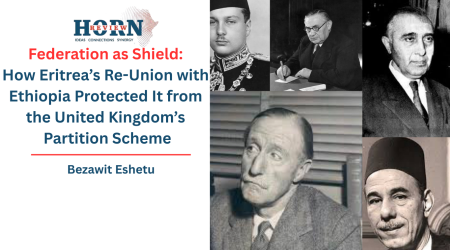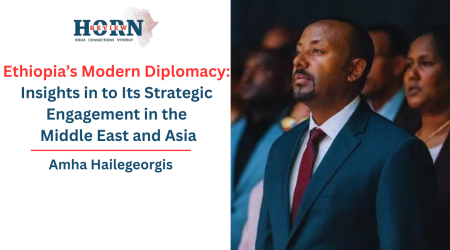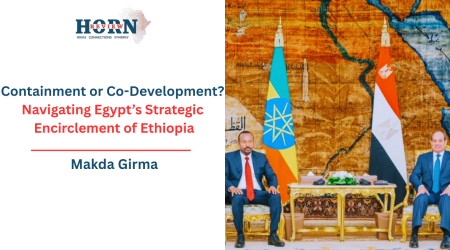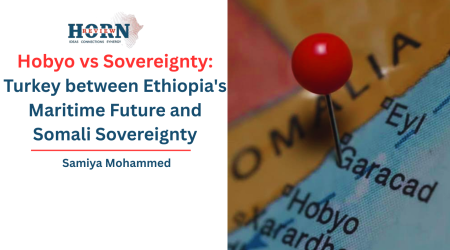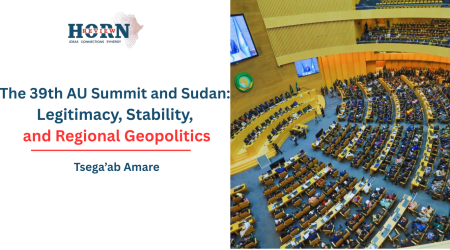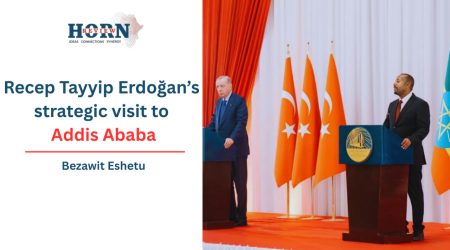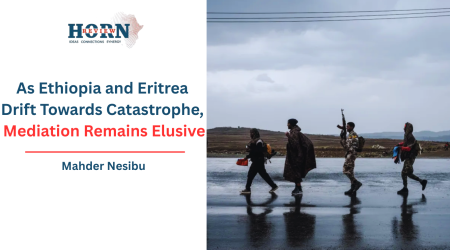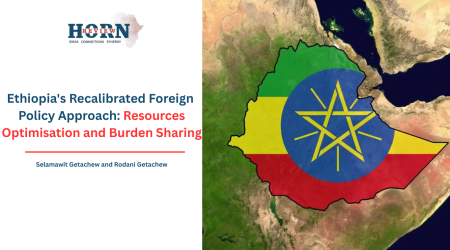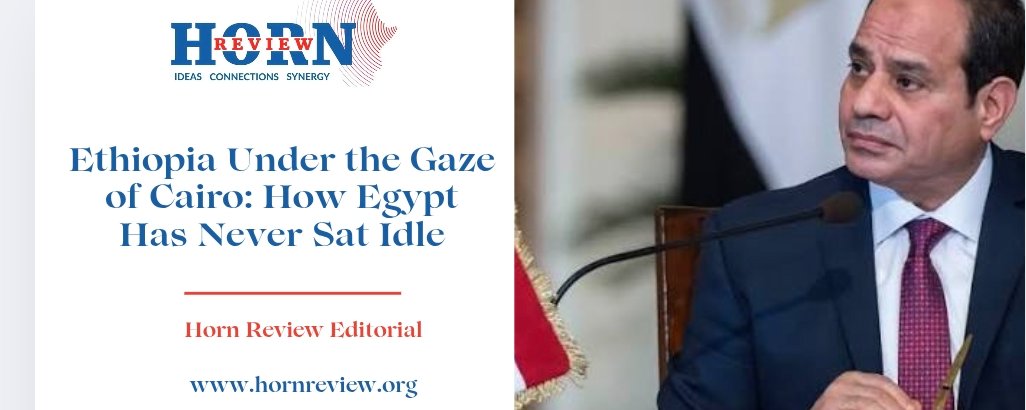
18
Oct
Ethiopia Under the Gaze of Cairo: How Egypt Has Never Sat Idle
To portray Egypt as a passive actor in the Horn of Africa is to fundamentally misunderstand the architecture of power and influence that Cairo has meticulously constructed over decades. Far from reactive, Egypt’s engagement with Ethiopia has been deliberate, continuous, and multidimensional, aimed at shaping the political, economic, and geographic landscape of its upstream neighbor. Egypt’s interventions reveal a coherent logic: Ethiopia’s sovereignty, regional influence, and developmental trajectory have consistently been treated as variables to be constrained, rather than as a partner to negotiate with on equal terms. This persistent strategy demonstrates that, contrary to President Abdel Fattah El-Sisi’s recent declaration that “Egypt will no longer sit idle”, Egypt has never sat idle, and that its interventions operate at the intersection of territorial control, resource politics, and regional order.
The creation of Eritrea as an independent state provides the earliest and most consequential illustration of this strategy. Through sustained engagement with the Eritrean Liberation Front (ELF) and later the Eritrean People’s Liberation Front (EPLF), and concurrent cultivation of Ethiopian opposition factions like the Tigray People’s Liberation Front (TPLF), Egypt reshaped the Horn’s political geography. This was not opportunism; it was deliberate structural engineering. Eritrea’s independence rendered Ethiopia landlocked, constraining its economic sovereignty, limiting maritime trade options, and weakening its leverage in regional geopolitics. Beyond territorial consequences, the alliances Egypt facilitated between the TPLF and EPLF created enduring internal fissures, forcing Ethiopia to expend political and military resources navigating domestic fragmentation. These interventions reveal a sophisticated understanding that national stability and territorial control are not merely domestic concerns but are central to regional power dynamics.
Boutros Boutros-Ghali’s intellectual contribution to these strategies is illustrative. By articulating Egypt’s “historic rights” over the Nile, he provided both an ideological and legalistic framework that justified proactive interventions, including support for secessionist movements and upstream constraints. Even during his tenure as UN Secretary-General, his Egyptian identity and diplomatic leverage subtly aligned international legitimacy with Cairo’s objectives, ensuring that Egypt’s structural interventions received a veneer of normative acceptability. This demonstrates that Egypt’s strategy was both material and discursive: shaping events on the ground while framing international narratives to its advantage.
Cairo’s strategy extended well beyond Ethiopia’s internal politics. By actively recruiting Ethiopia’s neighbors into the Arab League – Sudan and Somalia in particular – Egypt transformed a regional institution into a strategic lever, embedding influence and aligning ostensibly independent states with its regional agenda. Simultaneously, Egypt cultivated diplomatic and security ties with non-bordering East African states, including Djibouti, Kenya, and Tanzania, creating a diffuse yet coherent web of influence. This network allows Egypt to project power and shape outcomes in Ethiopia’s periphery, demonstrating a long-term commitment to regional encirclement and strategic suffocation.
Following Ethiopia’s pursuit of sovereign access to the sea, Egypt operationalized its strategy more overtly, forming a tripartite alliance with Eritrea and Somalia. This alliance integrates intelligence sharing, military coordination, and economic collaboration, creating structural constraints on Ethiopia’s ambitions. Egypt’s military presence in Somalia has now expanded to participation in the AU-sanctioned AUSSOM peacekeeping mission – the first official Egyptian deployment there – while Ethiopia has maintained a continuous peacekeeping presence for over three decades. This shift underscores Cairo’s willingness to move from indirect influence to direct engagement when strategic imperatives demand, illustrating a fluid and adaptive operational logic.
Egypt’s opposition to the Grand Ethiopian Renaissance Dam (GERD) further exemplifies the sophistication of its strategy. Beyond hydrological or environmental concerns, Egypt has leveraged international institutions, multilateral financial mechanisms, and donor influence to constrain Ethiopia’s developmental autonomy. Efforts to block investment, influence World Bank and IMF lending decisions, and mobilize regional diplomatic pressure reveal a structural approach: controlling upstream water resources is inseparable from constraining Ethiopia’s broader capacity for economic and geopolitical agency. GERD, in Egypt’s calculus, represents not merely water but a locus of power capable of reshaping the upstream-downstream balance in the Nile Basin.
Equally consequential are Egypt’s interventions in Ethiopia’s internal security environment. Historical and contemporary evidence points to direct support for insurgent and opposition movements through logistical aid, arms provision, and diplomatic shielding. These actions are not isolated – they operate as part of an integrated strategy to destabilize Ethiopia, compelling it to divert political, military, and economic resources inward rather than toward asserting sovereignty and regional influence.
The cumulative effect of these strategies constitutes a pattern of strategic suffocation: Ethiopia has faced the loss of direct maritime access, coordinated encirclement, internal destabilization, and systematic constraints on its development projects. Egypt’s engagement has never been episodic; it is continuous, structurally coherent, and conceptually sophisticated, blending hard and soft power, diplomatic maneuvering, and normative framing.
Egypt has never sat idle. From shaping Eritrea’s secession and forging proxy alliances, to embedding itself in regional security architectures and constraining Ethiopia’s water sovereignty, Cairo’s strategy demonstrates a persistent, multi-layered approach to influence. For Ethiopia, defending its national interests – water security, territorial integrity, and regional leadership – is not merely a policy option but a structural imperative. Ensuring these rights demands strategic foresight, multidimensional diplomacy, and assertive development initiatives capable of countering long-standing external pressures while asserting Ethiopia’s rightful sovereignty and regional agency.
By Horn Review Editorial

